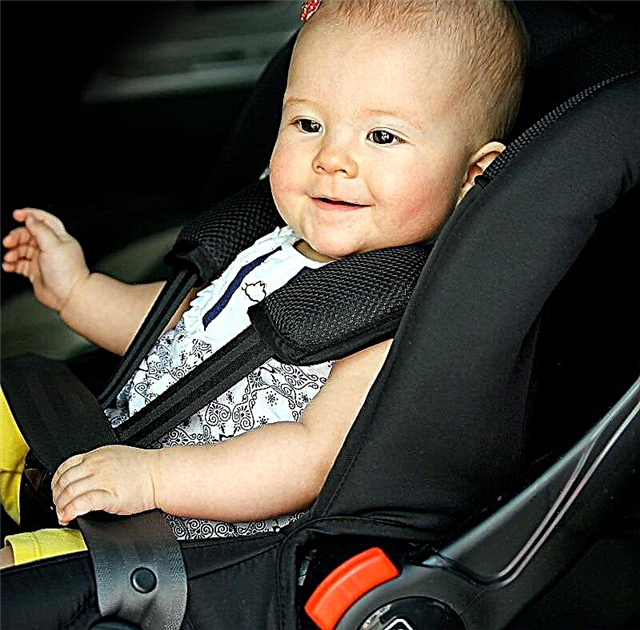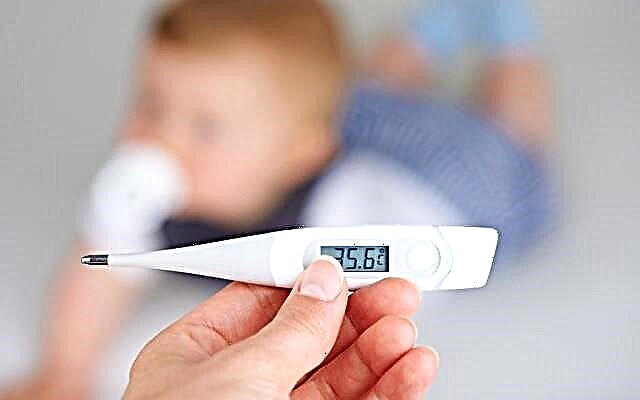In the first months of life, the baby can only sleep, and wake up only for feeding. In the future, the baby begins to stay awake for a long time, honing each of his new skills. Sometimes laying is delayed for one or two hours, after the child wakes up at night, can cry, whine, shake and scream, being in severe hysterics. If such awakenings are permanent, and the baby cannot sleep afterwards, a pathological disease may occur.

The kid woke up at night
Sleep rates in children
It's great when the baby falls asleep in a matter of minutes. This usually happens in the first months. Subsequently, the baby's awareness grows, so he studies the external space more, and before bed he likes to hear a fairy tale or a lullaby from his mother.
In pediatrics, a child's daily sleep rate is distinguished:
- newborn babies sleep up to 22 hours a day;
- at 1-3 months - up to 20 hours;
- at 3 months-six months - up to 16 hours;
- a baby sleeps 13-14 hours a year;
- at 2-4 years old - 12 hours;
- after 4 years - at least 10 hours.
Important! Most of the sleep occurs at night. All indicators are individual. If for some children under one year old 2-3 daytime "quiet hours" are comfortable, for others - only one is enough. It all depends directly on the temperament and character of the baby.
Causes of poor sleep at night
Why a child often wakes up at night is a topical question, especially for mothers whose children have just been born. In infants, sleep is divided into several phases, the frequency of which changes constantly, with age, deep sleep becomes longer.
Note! There are frequent cases when the baby woke up with tears and screams, and after 2-3 minutes fell asleep again. This often happens when the baby is experiencing another leap in growth and development.
If parents have clearly thought out the daily routine, rituals before rest, then sleep disorders usually do not happen.
Physiological
When a nursing baby often wakes up at night, it is often due to a physiological nature:
- He is hungry or thirsty. The natural need makes the baby wake up and scream loudly so that the mother comes up as soon as possible.
- Improper temperature or humidity conditions.
- It's time to change your diaper.
- Teeth are coming through.
- The narrowness of the nasal passages, the problem is solved as they grow up on their own.
- Painful colic. Most often, they appear if breastfeeding is not established correctly, or the baby ate well before bedtime.

Colic is one of the most common causes of nighttime awakening in babies
- Uncomfortable clothes, allergy to mattress filler materials, bed linen.
Psychological
A baby can get up in the middle of the night for other reasons:
- Unconscious movements of arms and legs woke him up.
- Anxiety. The baby survived childbirth, this is an extremely difficult moment for him, so up to 5 months he needs close contact with his mother.

The child needs constant contact with his mother
- Nightmares, fears and worries, lived through the whole day, translate into restless sleep.
- Excessive attachment. On this score, pediatricians agree that at the age of 11 months it is time to wean the baby from sleeping with his parents. However, it will be unpleasant for the child, he will whine and be capricious, which will affect the rest.
- Emotional overload during the day. Before going to bed, you should carry out soothing procedures and set the baby up for rest.
Pathological
If a child suddenly began to wake up at night or does not sleep at all, behaves unusually and restlessly, then this is probably a signal of an incipient illness. You should track the baby's behavior in the coming days and call a doctor at home if necessary.
A fairly serious cause that causes sleep disturbance is the pathology of the bladder, respiratory system or cardiovascular system:
- Nocturnal enuresis. In this case, the baby wakes up every 1-2 hours, cries. Usually the diaper is filled. You should immediately consult a doctor so that an exacerbation of the disease does not happen.
- Apnea - when a child wakes up from shortness of breath, takes short breaths, cannot even cry out. Ignoring this problem can result in cardiac arrest.
- ICP (intracranial pressure) or epileptic shock. Occurs in children under one year old, requires mandatory medical intervention. In case of epileptic shock, children randomly move around the crib, scatter toys that fall under their arm, bang their heads against the pillow, and immediately fall when they try to get up.

Increased intracranial pressure is the cause of restless sleep
What to do
Dr. Komarovsky offers rules that will help to establish a child's sleep:
- Upon arrival from the hospital, immediately determine the daily routine that will be convenient for all household members.
- Determine how and where the baby should sleep. The best option, according to the doctor, is the baby's own bed.
- Optimize your diet. From birth to three months, the baby needs 2-3 night feedings, after that one is enough.
- During the day, you should actively play, move, engage. If the baby is tired during the day, he will sleep soundly at night.
- Create a comfortable microclimate in the room.
- Massage before bed, bathing in cool (up to 32 degrees) water in a large adult bath.
- Choose a high-quality hypoallergenic mattress for the crib, and bed linen made from natural fabrics. A child does not need a pillow until two years old.
- Choose reliable disposable diapers so that nothing interferes with the healthy sleep of the baby. Komarovsky recommends buying those that have a "smart" absorbent layer.
Baby's wakefulness
If the baby is a week old, then nothing should be done with night awakenings - the norm at his age is to stay awake at night from 3 to 5 times, awakening for feedings. It takes only 15-20 minutes, and the baby sleeps again, clean, disguised and full of mother's milk or mixture. He rests for 3-4 hours, it does not matter whether it is night or day.

Night feeding
Additional Information. You can not skip feedings at night - this is fraught with consequences: the regime of the day will be disrupted, the emotional health of the child will be undermined.
How to help
If the child woke up once in the dark, and in the following nights the regime did not go astray, it makes no sense to panic. If the crumb has been sleeping during the day for several days in a row, and requires games at night, Komarovsky recommends mercilessly reducing the time of daytime rest.
It is also important to observe your child: in what position he sleeps, what is the nature of the dream. Violations are diagnosed by a doctor, but parents can also determine: if the baby throws his head back during sleep, then this may be due to intracranial pressure, if he opens his eyes while resting, then he is overexcited.
Important! Children are very weather sensitive, so sleepless nights can be short-lived due to surges in atmospheric pressure.
Eliminating external causes of discomfort
Parents should strictly monitor the temperature regime in the room (ideally, if it is 18-22 degrees Celsius) and the humidity level (around 50-70%). It is also important to create the most calm atmosphere during sleep, to avoid quarrels, scandals and conflicts.
Avoid emotional overload
As they grow up, the baby will actively explore the world, receive a lot of emotions. In order for his sleep to be sound and healthy, the baby in front of him should be relaxed, rituals, massage, bathing with herbs should be performed. You should not give gadgets or TV to watch before rest, it is much more effective to sing a lullaby or read your favorite fairy tale.
When to see a doctor
If a child has the following symptoms, then a doctor should be consulted immediately:
- The kid throws rattles, toys, bangs his head on the pillow, sides.
- The baby sleeps restlessly, shakes its head left or right, rolls over the entire bed.
- The child woke up due to a short-term cessation of breathing, which causes him to feel anxiety and fear.

Apnea in children requires treatment
Poor and restless child sleep is a common problem. Young parents dream, as a rule, of only one thing - to get enough sleep, so they want the baby to sleep all night long. But the baby can constantly wake up, flinch in a dream and even scream for various reasons. The developing disease should be prevented in time.



